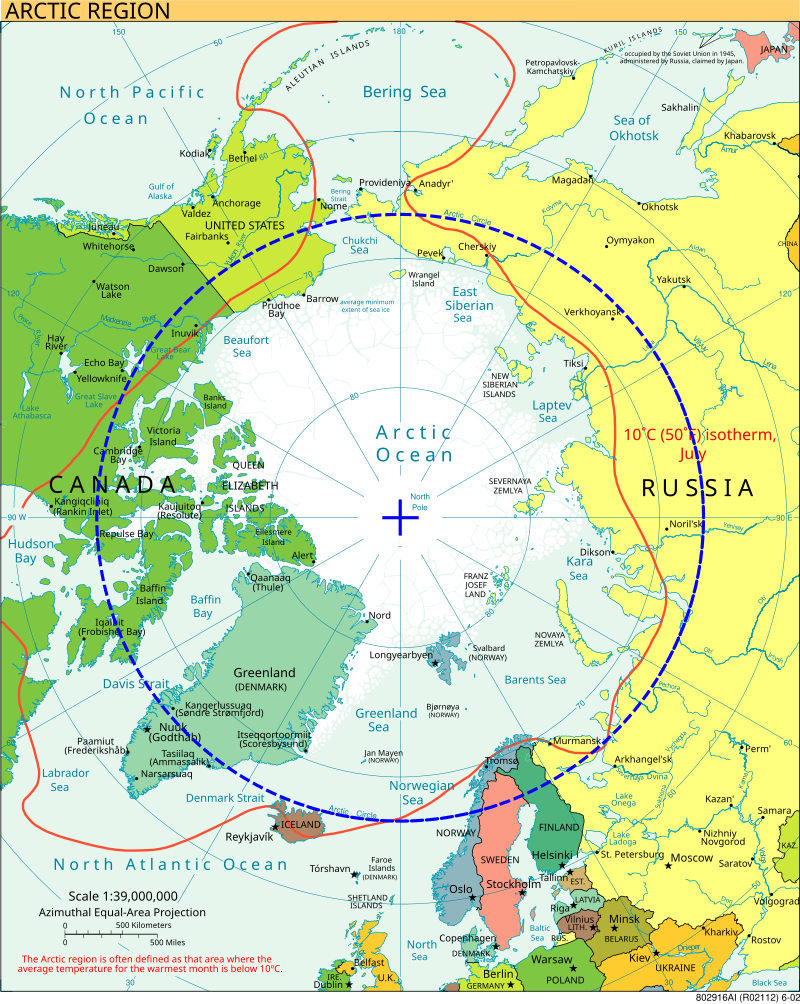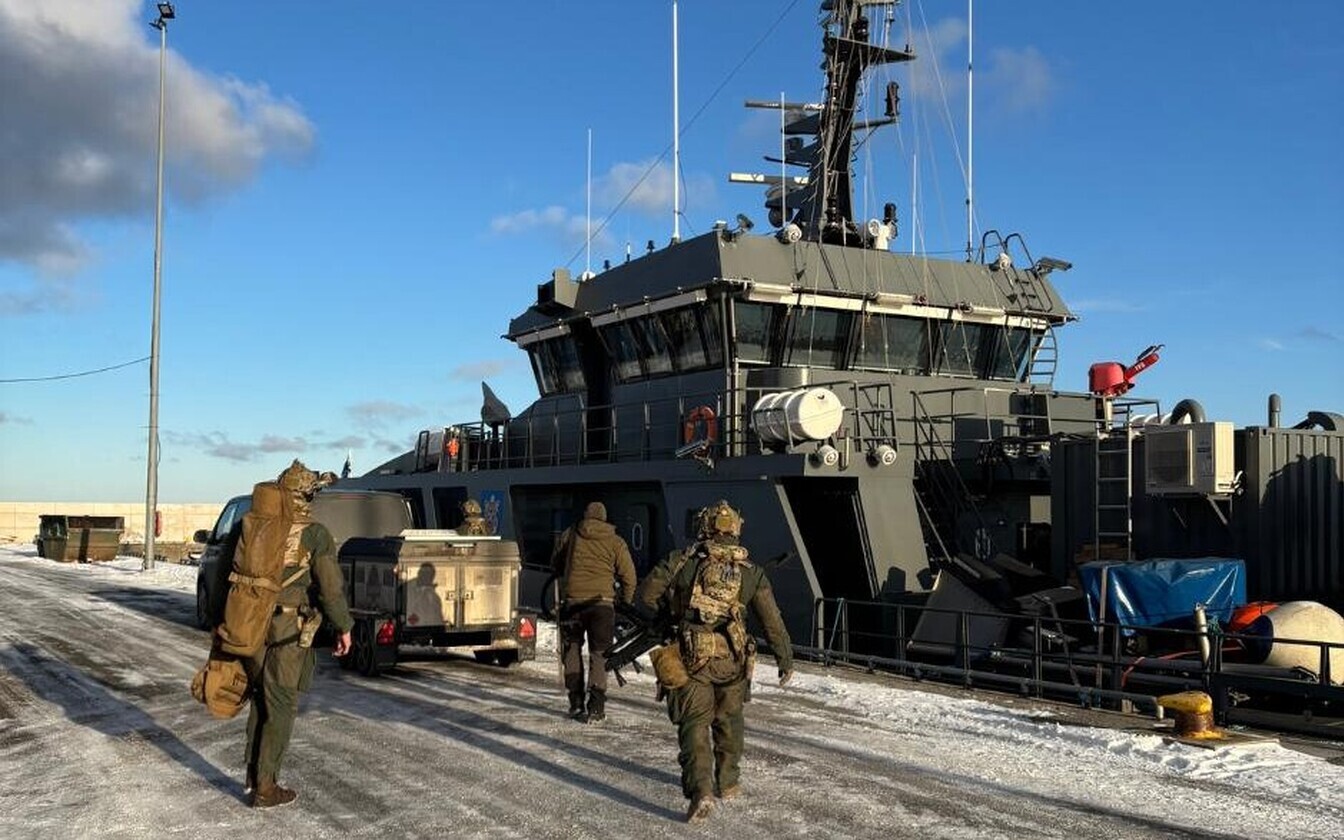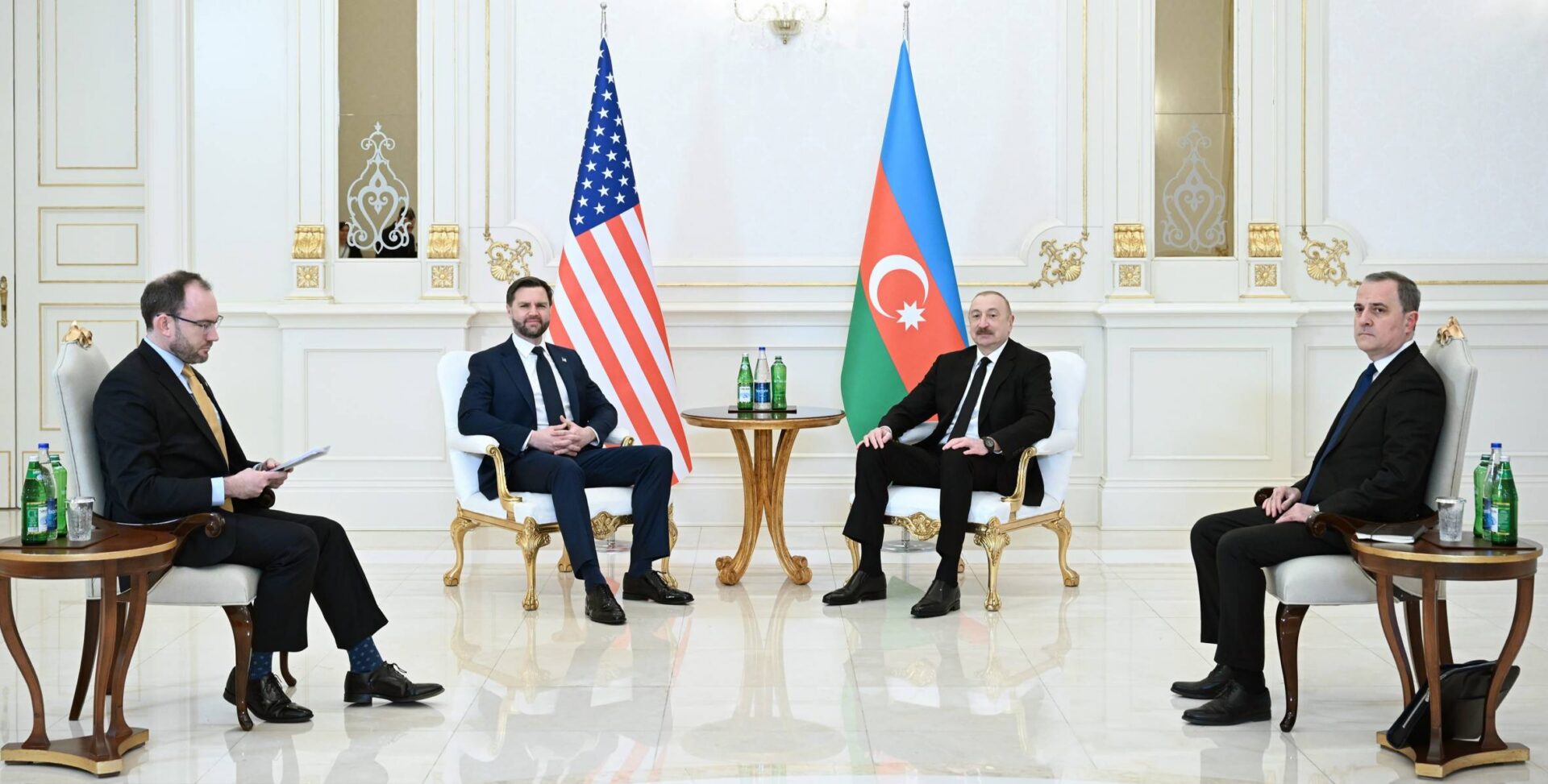
Russian Commentators Take Advantage of Trump’s Greenland and Canada Rhetoric
Russian Commentators Take Advantage of Trump’s Greenland and Canada Rhetoric
Executive Summary:
- U.S. President Donald Trump’s rhetoric on Greenland and Canada highlights the emerging strategic rivalry in the Arctic. Russian commentators present this as a new justification for its territorial expansionist ambitions in the Arctic and beyond.
- Russian experts see Trump’s focus on the Arctic as a strategy to counter Russia’s influence in the region, driven by resource competition and military positioning. Moscow is exploiting these narratives to amplify its propaganda and Arctic objectives.
- Russia is using Trump’s controversial statements to strengthen its anti-West narratives, with some experts advocating for aggressive measures, including invoking historical claims on Alaska, intensifying Arctic tensions and risks of conflict.
U.S. President Donald Trump has made numerous controversial comments about the United States’ relationships with its neighbors in the past few months, including proposing the annexation of Greenland and Canada (Nezavisimaya Gazeta, January 7). He has stated that Washington’s “subsidization” of Canada goes beyond trade, with the United States needing to protect Canada, which “does not have actual armed forces” (Vedomosti.ru, January 7). These rhetorical escapades did not go unnoticed in Russia, a country that has been historically prone to territorial expansionism. Russian commentators are using President Trump’s rhetoric vis-à-vis Canada and Greenland as newfound justification for Moscow’s long-standing ambitions—and the People’s Republic of China may also exploit the opportunity.
Greenland has a strategic geographic location and is of critical importance to North American security. The island has a broad autonomy under Denmark and uses Danish currency but is not a member of the European Union. In 1946, the United States attempted to purchase the island from Denmark for $100 million (RBC, January 9). In 2019, during his first presidential term, Trump had voiced ideas of “purchasing Greenland” (TASS, January 10). Now, he is entertaining the idea once again but, reportedly, in a much more assertive and decisive manner. Aside from Trump, the world’s richest person and his close associate, Elon Musk, also stated—despite not being an elected official or member of the U.S. government—that should the population of Greenland indicate their willingness to join the United States, this would be very much welcomed by Washington (Nezavisimaya Gazeta, January 7). In an official statement, the Greenlandic leadership stated that while the island is not for sale, “Greenland looks forward to working with the incoming U.S. administration and other North Atlantic Treaty Organization [NATO] allies to ensure security and stability in the Arctic region” (Naalakkersuisut.gl, January 8).
The United States has been paying more attention to the Arctic vector in recent years. Most Russian experts attributed Trump’s interest in Greenland to geopolitical competition in the Arctic. The head of the ultra-conservative think tank, the Russian Institute of Strategic Studies (RISS), Ilya Kravchenko, stated that Trump’s rhetoric regarding Greenland is “[his] attempt to tackle the international community’s reaction.” He further said, “It is now a pervasive opinion in Washington that the Arctic region should be developed [осваиваться, osvaivatsia] much more intensively to hinder Russia’s advancements. All this fits the U.S. concept of deterrence [of Russia]” (Russian.rt.com, December 24, 2024). In the opinion of U.S. expert Konstantin Blokhin from the Center for Studies of Security Problems at the Russian Academy of Science, Trump’s rhetoric is “probably less about the purchase [of Greenland] than beginning negotiations with Denmark about hammering out better conditions for deployment of American military infrastructure.”
The increase of U.S. efforts in the Arctic is primarily driven by the region’s rich natural resources and access to the world’s shortest transportation artery between Asia and Europe, the Northern Sea Route. Access to the Arctic through Greenland and Canada would open the shortest path for ballistic missiles from the United States to Russia. Blokhin also added that Trump’s rhetoric is not intended to be serious but a classic negotiation technique, believing it to be a strategy for building U.S. military outposts in the Arctic (RIA Novosti, December 25).
Incidentally, Russian propaganda has long tried using Greenland and the opinions of the indigenous population to increase the rift between locals and the West (EDM, June 20, 2019). Recently, Russia’s propagandist onslaught increased, even arguing,
The majority of Greenland’s indigenous population does not want to become an American colony. That is why we should not discount the voices of those locals who argue for independence and see Greenland’s economic restoration only in close cooperation with China. In the future, such a scenario would be geopolitically beneficial for Russia, which would receive an adequate and pragmatic partner to realize its Arctic projects (Russtrat.ru, August 23, 2024).
This is ironic considering Russia’s imperialistic past and how it continues to repress the indigenous populations within the Russian Federation who seek independence (see EDM, August 10, 2022, November 29, December 11, 2023; see Russia’s Rupture and Western Policy, a Joint Jamestown–Free Nations of Post-Russia Forum Event, March 29, 2024).
Canada has also become a target of Trump’s rhetorical pressure. In one of his speeches, Trump claimed that the United States is “subsidizing” the Canadian economy and not getting enough value. He also taunted Canadian Prime Minister Justin Trudeau, referring to him as the “governor of Canada,” hinting that Canada is on its way to becoming the United States’ 51st state (Nezavisimaya Gazeta, December 24, 2024). The Russian media gladly picked up the rift between Ottawa and Washington. On X, the Russian Ministry of Foreign Affairs stated, “The resigning Canadian PM who sacrificed his nation’s sovereignty to the ‘rules based order’ under U.S. leadership, is trying to do a ‘good face on a bad game,’ being pressured to yield Canada as [the] 51st state. Looks like the train of Canadian national pride has left the station… (X.com/mfa_russia, January 10). Later, Russian media continued to enthusiastically savor Trump’s remarks about the inclusion of the country into the United States and Trump’s reported readiness to economically punish Ottawa if this does not materialize (TASS, January 6).
Most Russian experts, however, view Trump’s threats to “annex” Canada quite skeptically. Political technologist Pavel Dubravskii said that what matters is what Trump does after his inauguration, not his current rhetoric (Gazetametro.ru, December 26, 2024). In a related comment, Sergey Mikhailov, a Senior Fellow at RISS, called Trump’s behavior a “conspicuous example of political bullying” where Trump is setting the stage for further talks on the issue and assuming a stronger position (Pnp.ru, December 24, 2024).
Even if Trump’s rhetoric regarding both Canada and Greenland is just a trick aimed at strengthening U.S. bargaining positions, Russia will most certainly try to take advantage of this situation. For example, Sergey Mironov, the leader of the faction “A Just Russia” in the Russian Parliament, stated on X, “Canada? Greenland? We are inevitably facing an issue of returning Alaska to Russia. There are many reasons to recognize the deal of 1867 as unlawful” (X.com/mironov_ru, January 9). Notably, (ultra)conservative Russian military experts are increasingly referring to the “Alaska issue,” stating that developments in the Arctic are resembling Ukraine, where the West is planning to attack Russia once its military capabilities are able. Thus, some Russian experts have already called for preventive measures, such as carrying out a “Special Military Operation in Alaska” (Ukraina.ru, May 17, 2023). This could be conducted based on the patterns of previously engineered regional conflicts, such as Ukraine in 2014, where Russia took an active part in the conflict without the direct participation of its armed forces. Given tensions over Svalbard and an artificially generated “migrant crisis” on the Finnish–Russian border, a scenario where Russia—acting through paramilitaries or irregular formations—could act much more assertively and provocatively in the Arctic is possible (see EDM, May 30, October 1, 2024).


